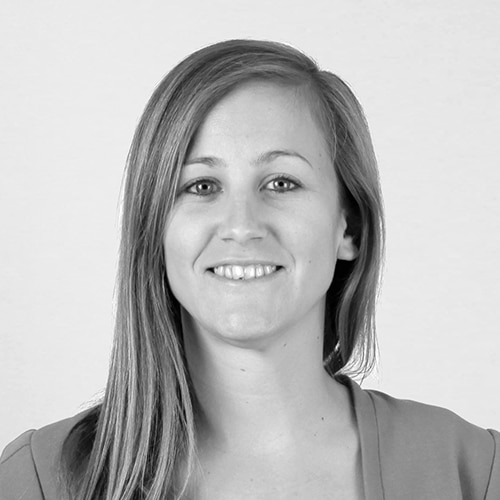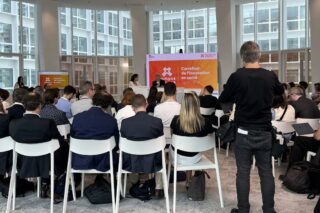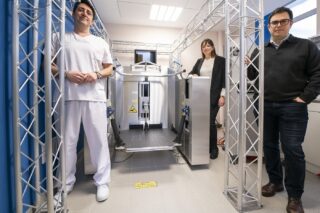During MEDICA, we learned more about Germany’s first AI-powered tool for patient documentation. Here’s how Jameda’s Noa Notes is transforming medical practices.
The medical platform Jameda has launched Noa Notes, Germany’s first AI-powered application. The team at Jameda designed this patient documentation platform for nearly all physician-to-patient sectors. It uses advanced medical speech recognition to streamline the documentation of consultations. It allows physicians to focus more on patient interaction rather than administrative tasks. The app’s September release follows an extensive testing phase which began last May. Over 100 medical practices evaluated the tool across 2,000 trials. The results indicate a significant time-saving advantage, with the app reducing documentation time by up to 11 minutes per patient, according to Jameda.
Reducing Workload for Physicians, Improving Patient Care
The introduction of Noa Notes addresses a prevalent challenge in healthcare: the heavy documentation burden that affects nearly all practitioners. A recent survey showed that nine out of ten doctors view documentation as a weekly workload strain, often consuming over three hours of their time a day. By automating note-taking, Noa Notes alleviates this administrative load and is meant to foster a more personalized patient experience.
Feedback from early adopters has been largely positive, with physicians like Dr. Amir Gharagozlou reporting a reduction in documentation time from 15 to just 4 minutes per patient. Despite praise for the tool’s accuracy and speed, some users expressed interest in greater integration with existing Practice Management Systems (PVS).
Jameda has responded to this demand by engaging in discussions with various system providers to enhance compatibility. As Noa Notes rolls out, Jameda is offering it free of charge for a limited period, allowing all doctors the chance to experience the potential of AI-enhanced patient documentation firsthand.
During MEDICA, we sat down with Martin Elsässer, PR & Communications Manager at Jameda GmbH, to discuss Noa Notes in detail.
Jameda is offering it free of charge for a limited period, allowing all doctors the chance to experience the potential of AI-enhanced patient documentation firsthand.
READ all of our stories regarding telemedicine.


MedicalExpo e-Magazine: Could you tell us about the specific features of Noa Notes and how it differs from other digital documentation tools?
Martin Elsässer: Yes, Noa Notes is designed to address the significant documentation burden faced by doctors in Germany. Medical professionals often spend substantial time on paperwork, detracting from time spent with patients. This tool uses AI to record and transcribe consultations, focusing specifically on relevant medical facts, not on unrelated conversation. It’s built on OpenAI’s Whisper technology but operates on our secure servers. Doctors can customize the output structure to fit their practice’s needs, and the AI adapts to those preferences over time.
MedicalExpo e-Magazine: How does Noa Notes handle non-essential information?
Martin Elsässer: Unlike simple transcription, Noa Notes filters out irrelevant information, such as small talk, and zeroes in on key medical data—symptoms, medications, treatment plans, and costs. For doctors who need a comprehensive understanding of a patient, the AI can also be trained to include personal context, like mental health considerations, but currently, it’s optimized for efficiency-focused documentation.
MedicalExpo e-Magazine: Can Noa Notes be integrated with other medical systems or electronic health records?
Martin Elsässer: Currently, Noa Notes operates as a standalone tool, with options to export notes via PDF or copy-paste, but it does not yet integrate directly with electronic health record (EHR) systems. While we aim to facilitate future integrations, for now, it remains a simple solution focused on generating structured medical summaries from consultations without direct interaction with other systems.
MedicalExpo e-Magazine: What measures are in place for data security and patient privacy?
Martin Elsässer: Noa Notes complies with the European GDPR standards, and we’ve obtained the C5 certification from Germany’s BSI (Federal Office for Information Security), which applies to e-health software providers. We prioritize data security, hosting all data on secure servers to meet rigorous European privacy standards.
MedicalExpo e-Magazine: Is there training available for medical professionals using Noa Notes?*
Martin Elsässer: Yes, we offer detailed onboarding for any doctor who signs up, although the software is user-friendly for those with a basic understanding of digital tools. We inform our testers and users about obtaining patient consent to record consultations, as required for ethical and legal compliance.
MedicalExpo e-Magazine: What future developments can we expect for Noa Notes?
Martin Elsässer: While I can’t share specifics, we’re exploring enhancements that could extend Noa Notes to other areas within medical practices. Long-term plans may also include functionality for AI to handle billing codes, which could streamline insurance reimbursement documentation.
MedicalExpo e-Magazine: How did Jameda transition from its original business model to creating Noa Notes?
Martin Elsässer: Jameda initially focused on an online booking service for doctors and a platform where patients could find and book medical appointments. With about 5 to 6 million users monthly, this platform remains active, while Noa Notes represents our latest expansion into AI-based healthcare solutions.











